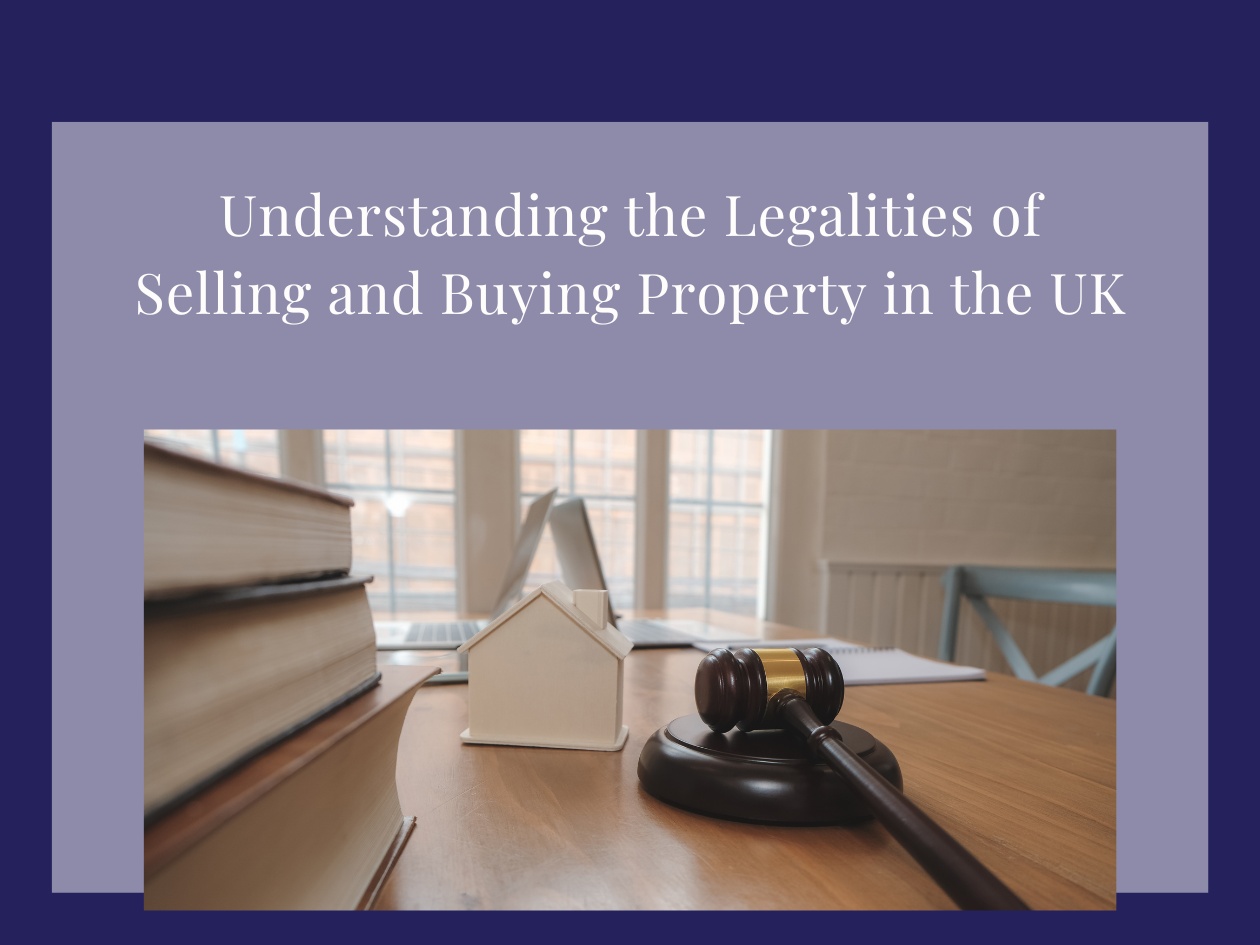Selling or buying a property is a significant milestone in one's life, but it can also be a complex process with various legal considerations. Understanding the legalities involved is crucial to ensure a smooth and successful transaction.
Essential legal aspects of selling and buying property in the UK
Conveyancing
The Role of Solicitors or Licensed Conveyancers Conveyancing is the legal process of transferring property ownership. Sellers and buyers typically engage solicitors or licensed conveyancers to handle the legal aspects, this section will explain the role of conveyancing professionals, their responsibilities, and the importance of their involvement in ensuring a legally sound transaction.
Title Deeds and Property Ownership
Sellers need to provide accurate and up-to-date title deeds to establish their ownership rights, while buyers must conduct thorough checks to ensure the property's legitimacy, this section will explore the significance of title deeds, the importance of conducting property searches, and the potential issues that may arise.
Property Surveys and Valuations
Before purchasing a property, buyers often commission surveys and valuations to assess its condition and determine its market value. We will discuss the different types of property surveys, such as the Homebuyer's Report and Building Survey, and their role in identifying potential defects or issues that could impact the transaction.
Contracts and Exchange of Contracts
The exchange of contracts is a pivotal moment in the property transaction process, it is when the buyer and seller become legally bound to complete the sale, this section will explain the contents of a typical property contract, the necessary conditions, and the implications of breaching the contract.
Stamp Duty Land Tax and Land Registry
Sellers and buyers need to be aware of the financial obligations associated with property transactions. Stamp Duty Land Tax (SDLT) is a tax paid by buyers upon the purchase of a property above a certain threshold. We will delve into the SDLT rates and exemptions, as well as the importance of registering the property with the Land Registry.
Leasehold vs. Freehold Properties
Understanding the difference between leasehold and freehold properties is crucial, especially for buyers, this section will explain the legal distinctions between the two types of ownership, highlighting the responsibilities, rights, and potential issues associated with each.
Completion and Post-Completion Obligations
Completion is the final step of the property transaction, where the seller receives the funds, and the buyer takes possession of the property, this section will cover the legal obligations
of both parties at completion and outline the subsequent post-completion tasks, such as notifying utility providers and updating the Land Registry records.
Understanding the legalities of selling and buying property in the UK is essential for a smooth and successful transaction. By familiarising yourself with the conveyancing process, title deeds, property surveys, contracts, tax obligations, and other legal considerations, you can navigate the process with confidence and ensure a legally secure transaction. Seeking professional advice from solicitors or licensed conveyancers is highly recommended to ensure compliance with all legal requirements and protect your interests throughout the process.
If you’re looking to buy or sell your home and would like advice – please do get in touch with our lettings team.






Share this with
Email
Facebook
Messenger
Twitter
Pinterest
LinkedIn
Copy this link